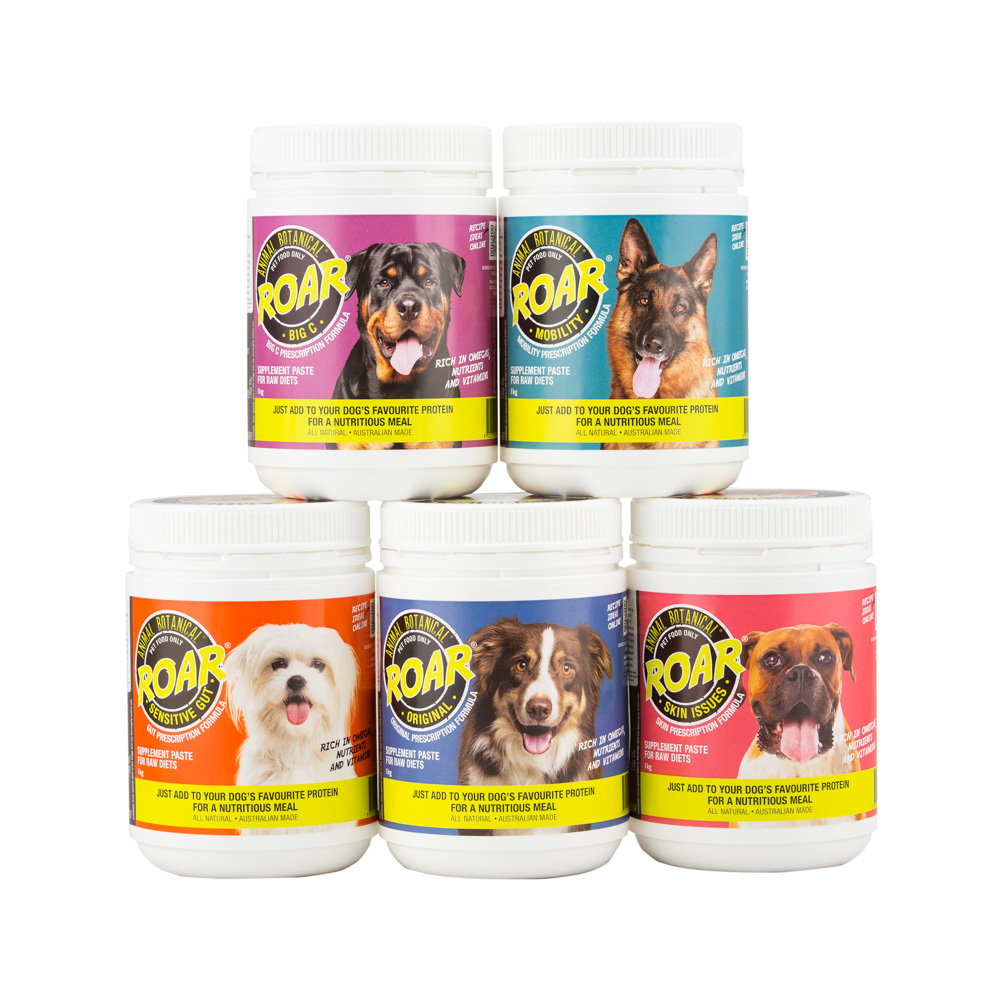We know that a dog’s diet impacts his health - skin, eyes, gums, teeth, digestion and overall wellbeing - but what is becoming more widely acknowledged is the impact of a dog’s diet on his behaviour and attitude…

Processed dog food is like processed human food - usually full of additives, preservatives and designed to last on the shelf of a store for long periods. Your dog needs protein to survive, and thrive. Genetically, dogs are nearly identical to wolves in the wild and share 99.9% of their DNA! (3).
THE meat in dry dog food only has to meet ‘feed grade quality’. That’s the absolute lowest quality of meat. Up until 2019, dry dog food manufacturers sourced its meat from the 4D’s - dead, dying, diseased and disabled animals (2).
To make the food shelf-stable manufacturers These additives can cause hyperactive behaviour, a lack of focus and even increase reactivity towards humans, other dogs or their environment.
Many commercial dog foods rely on carbohydrates and sugars (like grains and corn) as their main ingredients. High-carbohydrate diet (as opposed to a biological appropriate high protein diet) can cause a high level aggression and mood swings in your dog while chemicals and additives can cause hyperactivity and allergy reaction (1). High grain/sugar diets can cause blood sugar spikes and energy crashes in your pet.
Not enough protein can lead to a tryptophan deficiency. Trypohan is the essential amino acid that assists in the creation of serotonin, the chemical neurotransmitter known for creating feelings of happiness (2). On a low protein diet, you end up with unstable moods as low levels of tryptophan compete for absorption.
Signs you dog’s diet need improving;
- Dry skin or dull coat
- Bad breath
- Poor teeth and gums
- Digestive problems - constipation, diarrhoea or excess gas
- Increased allergies
- Skin disorders - dry, dandruff, fur loss
- Excess eating of grass or even poo!
- Low energy levels or depression
- Unusual aggressive or 'acting up'
So what’s the answer?
BARF stands for 'Biologically Appropriate Raw Food', but it can also stand for 'Bones and Raw Food’. Wild dogs eat nearly all of their prey - bones, skin, glands and offal. Just like us, our animals want and need some diversity. Both cats and dogs have evolved over thousands of year to consume raw meat. Their bodies are adapted to process raw, living foods with lots of a variety.
Commercial pet food only became available around a hundred years ago. Canned and dry dog food is certainly more convenient and often cheaper but not the best for health.
McDowells recommended diet
These are rough guides and can be adapted;
- 60% of it should be lean, raw meat (think cuts of beef, chicken, turkey or lamb)
- 10% of it should be raw edible bone (never cooked)
- 15% organ meat such as liver and other hormone secreting organs like kidney
- 10% vegetables, which provide micronutrients and some fibre. Examples are pumpkin, blended greens and blueberries.
- 5% should be Roar, Digestive or Forever young and if applicable, your prescribed McDowells herbs
McDowells Products
Roar is a super-food additive made from 100% real, natural ingredients to support internal health and wellbeing. Roar gives you the freedom to source your dog’s favourite fresh protein and you can be sure that your dog is eating everything he needs in a varied, raw and healthy diet. Roar is made in Australia from a blend of up to 35 powerful ingredients that can improve the whole digestive system and wellbeing.
References
(1) Understanding How Dog Food Influence Behaviour - By: Andrew Dual
(2) How changing your dog’s food can correct their behavioral issues
(3) Stop coddling your dog—he’s 99.9% wolf


